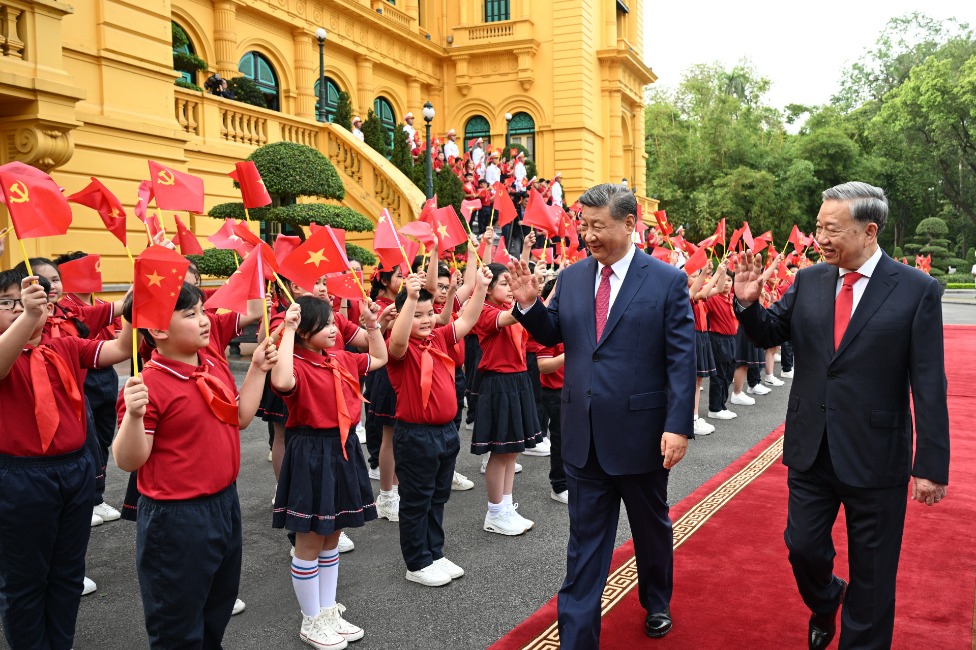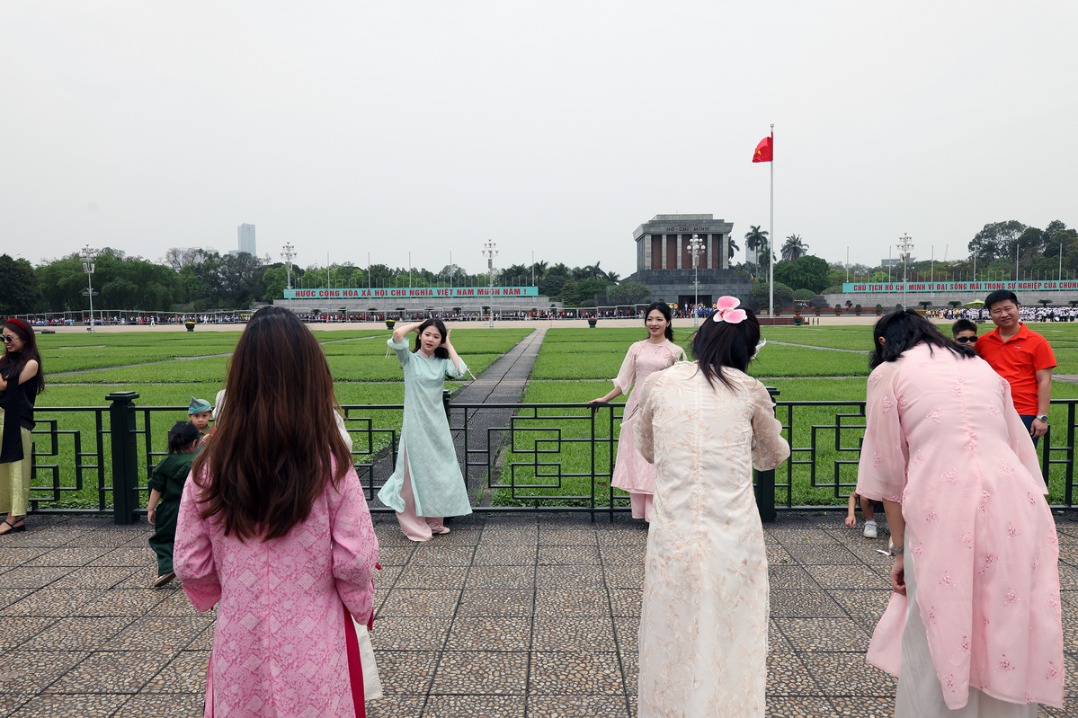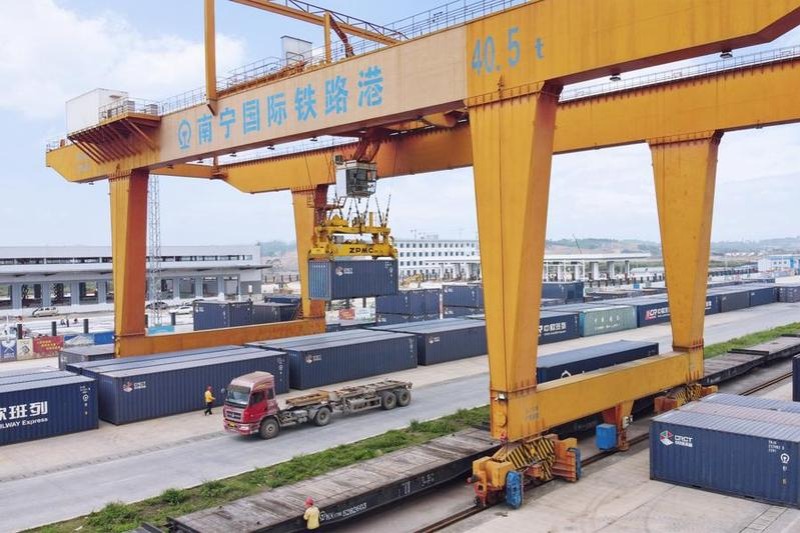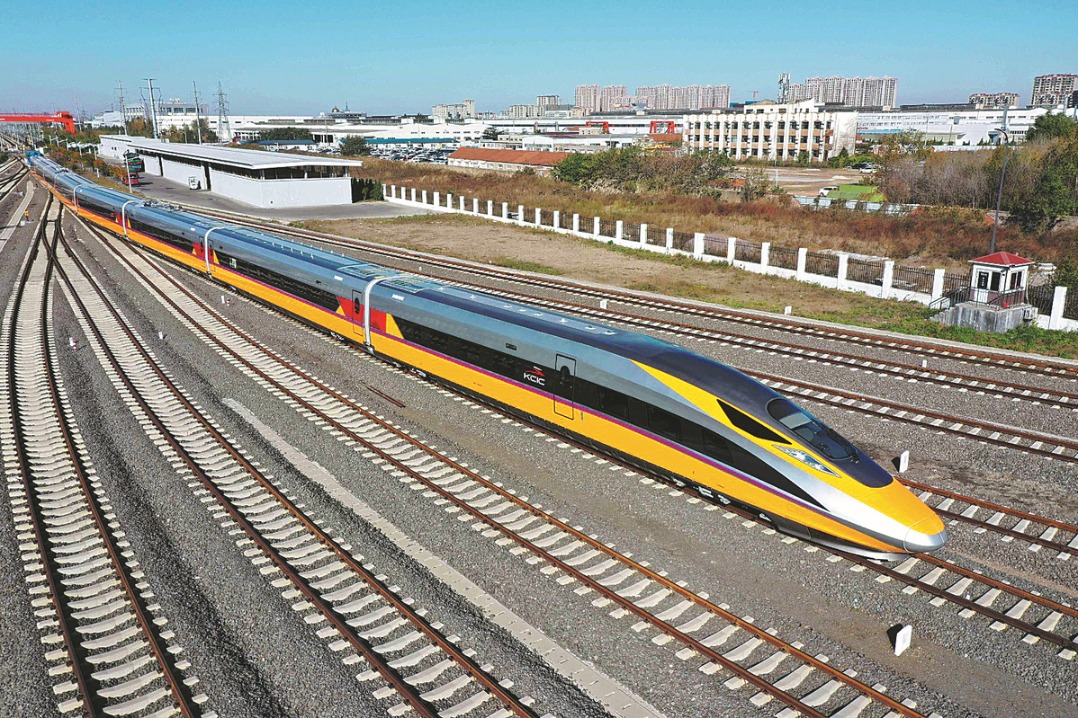Why Chinese talent and collaboration is central to KAUST's success


King Abdullah University of Science and Technology (KAUST) is an internationally renowned university located on the coast of the Red Sea in Saudi Arabia. With more than 120 nationalities on campus, this diversity of talent is what allows us to forge new paths in science and technology for the global good.
KAUST is the second ranked Arab university in the world accordingly to Times Higher Education in December 2022, and around 15 of its professors have been ranked in the Clarivate Highly Cited Researchers list every year for several years.
Chinese talent makes up a significant proportion of the nationalities represented across the University: 20% of our students, 34% of our postdoctoral researchers, and 9% of our world-renowned faculty are from mainland China.
Some of KAUST's top professors were proudly educated in China's best universities, and are leading innovative research in the Kingdom.
Professor of Computer Science Dr. Xin Gao is interim director of the Computational Bioscience Research Center, and deputy director of the Smart-Health Initiative. A graduate of Tsinghua University (B.S. 2004), Gao's research lies at the intersection of computer science and biology. He is a leading researcher on developing artificial intelligence (AI) solutions for various biological and biomedical applications, such as omics data analysis, drug development, biomedical imaging and genetic disease diagnosis. His group developed the first fully automatic AI-based system for COVID-19 CT-scan diagnosis, segmentation, quantification and prognosis prediction.
Associate Professor of Bioscience Dr. Mo Li is a graduate of Peking (Beijing) University (B.Sc. '01). His cutting-edge research attempts to understand the molecular basis of the regenerative mechanisms that maintain the proper form and function of the human body. He and his team developed a fast all-in-one method that can simultaneously diagnose cases, track COVID variants and detect co-infections — a technology that has been featured in the New York Times and other major international newspapers.

Another example of outstanding Chinese talent is Dr. Zhiping Lai, a research leader whose team has developed an economically viable system that can extract high-purity lithium from seawater. The researchers created an electrochemical cell containing a ceramic membrane made from lithium lanthanum titanium oxide (LLTO), and tested the system using seawater from the Red Sea. They hope to collaborate with the glass industry to produce the LLTO membrane at a larger scale and affordable cost. Lai's company and KAUST startup Lihytech has recently signed a Memorandum of Understanding with Suntar International group, who has their manufacturing base at Xiamen, China.
Associate Professor of Electrical and Computer Engineering Dr. Xiaohang Li is coordinating a semiconductor initiative at KAUST in partnership with the Saudi government and other universities. The pandemic highlighted the critical need to better secure the global supply chain for semiconductors, and many countries, including Saudi Arabia, have realized that having a domestic supply chain is key to stable employment, operations and national security. The aim is to develop a national strategic plan for advanced manufacturing and technological capability, with the goals of participating organizations aligned to the overall Saudi Vision 2030.
Innovative startups and partnerships are crucial for the Kingdom's success
KAUST has endeavored to enhance the innovation culture in the Kingdom. KAUST Innovation is a catalyst for supporting novel technologies, entrepreneurial development and impact. The aim is to put our research to use, and through our collaborations with industry, government and startups, we are leading a growing deep-tech ecosystem in Saudi Arabia.
KAUST has been an incredible incubator of startups for the Kingdom such as RedSea, a sustainable farming agritech business that has raised more than $40 million in venture capital, has set up offices in six international locations, and is exporting KSA tech to the greater MENA region and United States.
The largest of the five giga projects in Saudi, NEOM will be a destination for sustainable living, working and prospering on the Red Sea. The Line at NEOM was announced globally, and KAUST scientists are at the forefront of this innovative development, providing their expertise in circular carbon economy, hydrogen fuel, marine conservation and other key areas.
KAUST is involved in sensor development, modeling and prediction techniques to make The Line a true cognitive city. Green hydrogen will be an important part of NEOM's economy, so hydrogen innovations over the coming decades are necessary. Professor of Chemical and Biological Engineering and Associate Director, Clean Combustion Research Center Dr. Mani Sarathy is working with NEOM to scale up green hydrogen plants.
Like with NEOM, KAUST partners with Red Sea Global on ground-breaking applications of conservation and development planning to enhance biodiversity and conservation-priority species distributions across almost 1,300 square kilometers of pristine lagoon. The Marine Spatial Planning process coordinates multiple uses of the marine environment — energy and utilities, recreation, conservation, transportation and shipping, aquaculture and others, and carefully manages the way these interact with vulnerable species and habitats to optimize goals of both conservation and development.
Recently, KAUST and China's Sinovation Ventures signed an MoU with the aim of establishing a working relationship to serve their strategic interests through technology venture building, technology development partnerships, and related consulting services.
In another exciting development, KAUST has signed an MoU with Huawei Technologies to establish a strategic collaboration and framework for exploring scientific research and opportunities in areas including ion batteries, power conversion and electromechanical systems, organic thermoelectric and photovoltaic materials, AI in bioinformatics and smart health applications, 6G and optical communications.
Chinese organizations and Chinese talent are therefore critical to KAUST's success as an incubator of startups, and essential in providing research solutions for the Kingdom and the world.

































